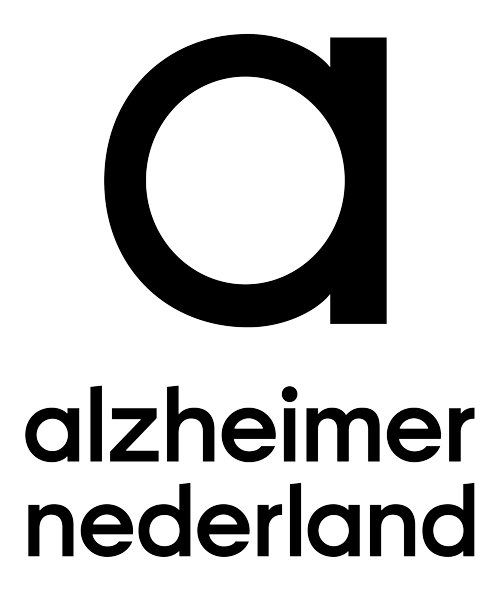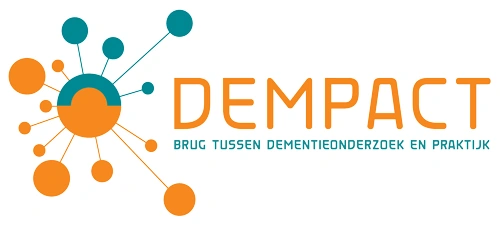List of Posters
List of Posters
-
1. Fundamental research
P1.1 Maud Bouwman (Amsterdam)
Synaptic loss in (para)hippocampal regions associates with cognitive decline and axonal damage in Alzheimer’s disease
P1.2 Tom Cremer (Amsterdam)
Understanding mitochondrial control of tau hyperphosphorylation
P1.3 Willem de Haan (Amsterdam)
Transcranial magnetic stimulation in Alzheimer's disease
P1.4 Kim de Kleijn (Amsterdam)
Fine-tuning microglia activation in Alzheimer’s disease via the TREM-receptor family
P1.5 Janna Dijkstra (Amsterdam)
Heritability estimates for all major types of dementia derived from over 12,000 extended families
P1.6 Esmée Dragt (Groningen)
Perturbations in microglia-neuron signaling in Alzheimer’s disease
P1.8 Anne Kolmans (Nijmegen)
Dementia-related stigma in the general public in the Netherlands
P1.9 Sascha Koppes-den Hertog (Amsterdam)
Enhanced cholesterol esterification in ApoE4/4 astrocytes suppresses immune activation
P1.10 Ambika Mahajan (Amsterdam)
Studying tau-induced neuron-astrocyte signalling
P1.11 Almudena Maroto Juanes (Amsterdam)
MAPT mutations cause changes in brain lipid metabolism in mice and human models of tauopathy
P1.12 Kevin Mol (Amsterdam)
Vascular plasticity during cerebral microvascular occlusions
P1.13 Ehsan Pishva (Maastricht)
A brain DNA co-methylation network analysis of psychosis in Alzheimer’s disease
P1.14 Oliver Polzer (Amsterdam)
Exploring synergistic miRNA therapy for Alzheimer’s disease: AAV-mediated delivery of miR-124 and miR-132
P1.15 Amos Pomp (Rotterdam)
Von Willebrand factor in relation to cerebral small vessel disease and cognition
P1.16 Niels Reijner (Amsterdam)
Clinical phenotypes of alzheimer’s disease: atrophy patterns and their pathological correlates
P1.17 Niek Renckens (Amsterdam)
The microglial modulation of a memory engram in the context of Alzheimer’s disease
P1.18 Robin Roovers (Amsterdam)
Research protocol ADAPT: treatment of agitated behaviour in patients with dementia non-responsive to guideline recommended interventions by argued personalized treatment using an N-of-1 approach
P1.19 Maren Salzwedel (Groningen)
The role of sex and gender in the adoption of assistive technology in dementia care
P1.20 Ayinde Swildens (Amsterdam)
The role of USP32 in tau-induced disruption of the neuronal auto- and endolysosomal system
-
2. Risk reduction and lifestyle
P2.1 Irene Heger (Maastricht)
Brain-healthy generations: an intergenerational project to empower young and old for a lifetime of brain health
P2.2 Rachel Heutz (Nijmegen)
Characterization of sleep patterns in relation to cardiovascular health in older adults at risk for cognitive decline
P2.3 Marieke Hoevenaar-Blom (Amsterdam)
Mediation of modifiable risk factors in two multidomain dementia prevention trials
P2.4 Kyra Kaijser (Amsterdam)
Evaluating recruitment strategies for diverse populations in Alzheimer's research: A case study on digital tools for brain health
P2.5 Giselle Menting (Maastricht)
Improving research for dementia risk reduction: what do we mean by cognitive and social activities?
P2.6 Dominique Paauw (Maastricht)
Evaluation of a public awareness campaign on dementia risk reduction in the Netherlands: a mixed methods study
P2.7 Rosa Palazuelos (Groningen)
The association between time-use in physical activities, TV watching, and sleep with cognitive performance among middle age and older adults: a cross-sectional isotemporal substitution analysis
P2.8 Tanya Palsma (Nijmegen)
An online platform for self-education and self-management of dementia risk reduction: a feasibility study among persons with subjective and mild cognitive impairment
P2.9 Awaale Fuad Rirash (Rotterdam)
Identifying barriers and facilitators to recruiting and retaining underrepresented groups in dementia prevention research in the Netherlands: insights from a scoping review and Dutch focus group
P2.10 Muhammed Lamin Sambou (Rijswijk)
Pesticides exposure and risk of common neurodegenerative diseases: a systematic review and meta-analysis
P2.11 Jens Soeterboek (Maastricht)
A cross-sectional study on the association between residential noise exposure, cognitive functioning, and structural markers of brain damage - the Maastricht Study
P2.12 Lion Soons (Maastricht)
The association between socioeconomic status, LIBRA, and cognitive performance in older adults at risk of cognitive decline: a cross-sectional study
P2.13 Lotte Truin (Maastricht)
An online dementia risk self-management platform for memory clinic patients and healthcare professionals: a pilot study of BreinZorg
P2.14 Lisa Waterink (Amsterdam)
Feasibility and acceptability of APOE genotyping in Dutch Brain Research Registry participants to accelerate trial inclusion
P2.15 Ana Wenzler (Groningen)
The association between chronotype and cognitive decline among middle aged and older adults: what is the role of modifiable risk factors?
-
3. Living with dementia
P3.1 Esmee Adam (Leiden)
Towards successful eHealth use in long-term dementia care: a survey study among Dutch healthcare professionals
P3.2 Franka Bakker (Zwolle)
Portrayals of living with dementia: results of a citizen science project
P3.3 Sara Laureen Bartels (Maastricht)
Relationship between cognitive functioning and everyday technology use: A cross-sectional study in people with cognitive impairments
P3.4 Dennis Boer (Haarlem)
Exploring physiotherapy and exercise preferences of nursing home residents with dementia: a qualitative study
P3.5 Judith Bom (Maassluis)
Navigating the dementia journey: Understanding care pathways in the years before death
P3.6 Lyasmin Boukich (Rotterdam)
Disparities in healthcare utilization under the Dutch Long-term Care Act (WLZ) among people with dementia
P3.7 Chiara Brück (Rotterdam)
Can case managers curb the financial burden of dementia in the future?
P3.8 Marike de Boer (Amsterdam)
Seeking consensus on dilemmas related to euthanasia in dementia based on an advance euthanasia directive. A Delphi study from a medical, ethical, and legal perspective
P3.9 Dyllis De Pessemier (Rotterdam)
The effect of a person with dementia's permanent nursing home admission on their partner's mental well-being
P3.10 Michael Echteld (Utrecht)
Promoting intersectionality in dementia research: patient trajectories of underserved groups
P3.11 Soukaina el Jaouhari (Amsterdam)
Persons with dementia from a migration background and informal caregivers prioritize their aging-in-place care preferences: a mixed methods study
P3.12 Anneke Francke (Utrecht)
Sex- and gender-related characteristics in caregiver burden: a nationwide survey among family caregivers’ care burden
P3.13 Jacoba Huizenga (Gorinchem)
The continuing changes in the everyday lives of family carers of people with dementia
P3.14 Femke Muller (Nijmegen)
Needs assessment and determinants of relationship quality within the dementia care triad in long-term care facilities: a mixed-methods scoping review
P3.15 Geeske Peeters (Nijmegen)
Strategizing transdisciplinary research priorities around the impact of COVID-19 control measures on people with dementia and informal carers living at home: a 14-country perspective
P3.16 Gijs Steinmann (Maastricht)
Living inside an organization: residential dementia care and concept of the organizational environment
P3.17 Rieneke Stelma-Roorda (Amsterdam)
Decision-making by and on behalf of adults with dementia: enhancing the potential of the levenstestament in practice
P3.18 Stella Thissen (Nijmegen)
Understanding the process towards and throughout crisis situations in persons living with dementia at home: a systematic review
P3.19 Eefje Sizoo (Amsterdam)
Health care professionals' perceptions on 'inclusive decision-making' with older residents of long-term care facilities
P3.20 Birgit van Ee (Zwolle)
From cooperation to collaboration: a toolbox for improved interaction between researchers and people with dementia
P3.21 Isabelle Vullings (Amsterdam)
Aging in place care preferences of persons living with dementia and informal caregivers with a migration background: a qualitative interview study
P3.22 Eden Zhu (Rotterdam)
Accelerating implementation and achieving research impact in the Dutch dementia research ecosystem: Lessons learned from the Alzheimer Centers
-
4. Diagnostics and prognostics
P4.1 Robert Brontsema (Groningen)
The prevalence of neuropsychiatric symptoms during crises in persons with dementia – A systematic review
P4.2 Paula Carmona (Leiden)
Motor sequence learning across the Alzheimer’s continuum: associations with biomarkers
P4.3 Casper de Boer (Amsterdam)
ABOARD Cohort: a national initiative to accelerate Alzheimer’s research
P4.4 Sterre Catharina Maria de Boer (Amsterdam)
Sporadic Frontotemporal Dementia. Advancing diagnostics and prognostics
P4.5 Stephan Duijkers (Maastricht)
Design of the VaMP multicenter study: contributing to diagnosis of dementia with mixed pathology in clinical practice
P4.6 Miriam Haaksma (Leiden)
Survival time tool to guide care planning in nursing home residents with dementia
P4.7 Heleen Hendriksen (Amsterdam)
Towards implementation of ADappt: a digital toolkit to support personalized information provision regarding diagnosis and prognosis in memory clinics
P4.8 Najoua Lazaar (Rotterdam)
Culture sensitive care and dementia diagnostics in practice: insights from the multicultural memory clinic
P4.9 Iris Linden (Maastricht)
The patient decision aid ‘Diagnostic testing for dementia or not’: early uptake and first impressions
P4.10 Josephine Lindhout (Amsterdam)
The association of ancillary diagnostic tests with outcome in dementia
P4.11 Oliyad Merdassa (Rotterdam)
Prevalence and clinical correlates of intracranial arteriosclerosis among patients with cognitive complaints in a clinic-based study
P4.12 Julia Neitzel (Rotterdam)
Performance of Alzheimer’s disease plasma biomarkers in the population-based Rotterdam Study
P4.13 Marlies Oegema (Groningen)
Phonological, morphological and syntactic impairment in mild, moderate and severe Alzheimer’s disease - a systematic review
P4.14 Ryanne Offenberg (Utrecht)
Explainable AI to support personalized diagnosis of vascular cognitive impairment based on lesion patterns on brain MRI
P4.15 Jackie Poos (Rotterdam)
The Digital Dementia Lab: validation of innovative digital biomarkers for early accurate diagnosis of frontotemporal dementia and Alzheimer’s disease
P4.16 Roos Rikken (Amsterdam)
Characterizing visual read tau-PET negative participants with Alzheimer’s disease dementia
P4.17 Mathijs Rosbergen (Rotterdam)
Prognostic value of subcortical gray matter volumes for 5-year dementia risk: a multi-cohort analysis
P4.18 Marit Stolte (Maastricht)
Communicating about dementia; How to effectively communicate neuropsychological test results?
P4.19 Ewoud van der Lelij (Utrecht)
Does norm-referencing white matter hyperintensity volumes help to assess their cognitive impact? A multicenter Meta VCI Map study combining normative data of 14,876 controls and 3495 memory clinic patients
P4.20 Lennart van der Molen (Nijmegen)
Changing definitions of disease: transformations in the diagnostic criteria for Alzheimer’s disease
P4.21 Angela van der Putten (Alkmaar)
Bridging the gap between cognition and everyday functioning: A linking study in amyloid positive participants
P4.22 Jetske van der Schaar (Amsterdam)
Genetic testing for familial Dementia: perspectives of patients and family members
P4.23 Veerle van Gils (Maastricht)
Associations between glucose metabolism measures and amyloid and tau load on PET 14 years later: Ffndings from the Framingham Heart Study
P4.24 Myrthe van Haaften (Rotterdam)
Deep learning classification of Alzheimer’s disease and frontotemporal dementia: generalizability to local memory clinics and the effect of finetuning on diagnostic performance
P4.25 Paula Vanneste (Amsterdam)
Towards uniformity in bvFTD Phenocopy Syndrome: specialists’ perspectives on diagnosis and management
P4.26 Marie Vermeiren (Amsterdam)
The impact of tau-PET in a selected memory clinic cohort: rationale and design of the TAP-TAU study
-
5. Promising innovative interventions
P5.1 Maud Daemen (Maastricht)
Adapting self-management support for people living with dementia: lessons learned from the Partner in Balance program
P5.2 Leontine Groen - van de Ven (Zwolle)
Supporting advance care planning over the dementia trajectory: developing an interprofessional approach
P5.3 Angela Steen - de Konink (Heerlen)
A group concept mapping study on AI and technological tools for addressing depression in nursing home residents with dementia
P5.4 Anastasia Lili (Tilburg)
A randomized, placebo-controlled, proof-of-concept study aiming to evaluate the safety, pharmacodynamics and pharmacokinetics of TW001 in early Alzheimer’s Disease patients
P5.5 Suzanne Portegijs (Utrecht)
Implementing a new living concept for persons with dementia in long-term care: evaluation of a quality improvement process
P5.6 Anna-Eva Prick (Heerlen)
Implementation of music therapy for people with dementia with problem behavior
P5.7 Niels Reinders (Maarssen)
Protecting synapses against Alzheimer’s Disease via the expression of specific peptides
P5.8 Anne Roos van der Endt (Nijmegen)
The Slow Race – Making innovations and technology work for people in vulnerable situations
P5.9 Tosca Van Hoorde (Leiden)
Including people with dementia in an interview study on user requirements for a to-be-developed emotion-intelligent robot: challenges and lessons learned
P5.11 Geraldine Visser (Zwolle)
The positive impact of nature and nature-based activities for people with dementia living at home. What can professional caregivers do to remove barriers?
P5.12 Sophie Wimmers (Maastricht)
The Lifestyle Intervention in memory clinics of General and academic Hospitals Trial (LIGHT): Rationale and design of a randomized controlled trial to reduce dementia risk
-
6. Young people with dementia
P6.1 Charles David (Maastricht)
The pre-diagnostic phase of young-onset dementia: a scoping review
P6.2 Caitlin Hibbs (Maastricht)
Comparing pre-diagnostic symptoms of young-onset dementia and late-onset dementia in the general practice
P6.3 Merwin Mortier (Nijmegen)
Post-diagnostic care and support for people with young-onset dementia: a Dutch national survey on use and experiences
P6.4 Elly Prins (Nijmegen)
Abstract Focusing
P6.5 Maud Ritzen (Maastricht)
Needs of persons with young-onset dementia and their informal caregivers, explored by dementia subtype, phase in the disease process, and living setting: a scoping review







